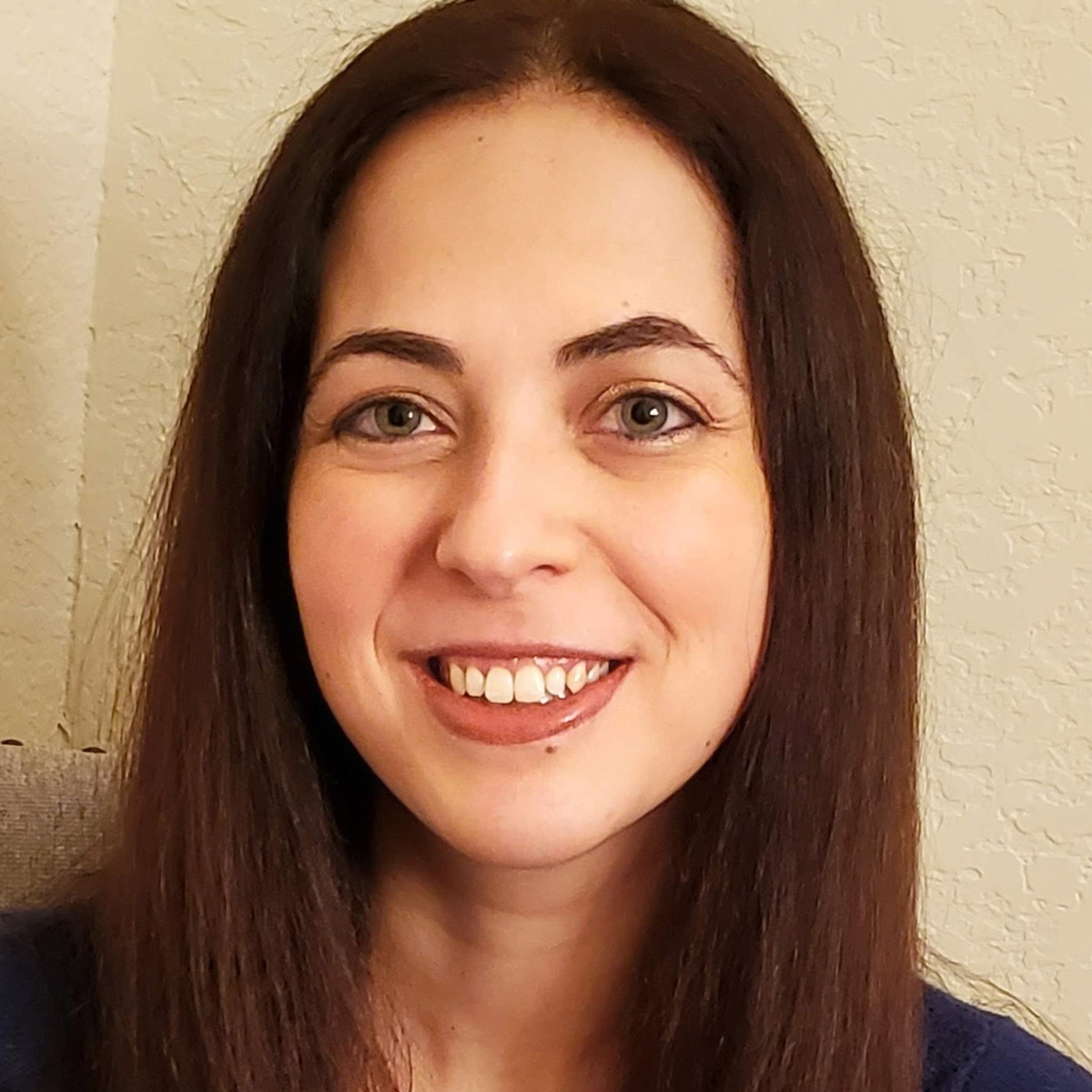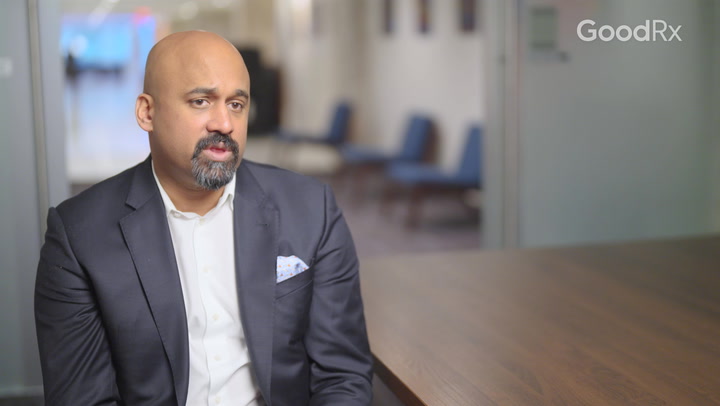
What Do Different Types of Doctors and Medical Specialists Do?
Key takeaways:
There are many types of medical specialists and subspecialists, and it can be difficult to know which type of doctor you may need to see.
Internists, family medicine physicians, and pediatricians are medical specialists that promote healthy living and treat disease with medications. Surgical specialists like general surgeons focus on conditions that may need a procedure or surgery.
Medical and surgical specialists can choose to focus on a particular body system, organ, or specific type of medical condition. These doctors are subspecialists.
Table of contents
There are many types of doctors and medical specialists. It can be hard to know what a particular specialist does — and which is best for your specific medical problem.
Let’s take a deep dive into common types of medical specialists and break down the terms of the work they do in the medical field. Understanding medical specialties and the differences between them can help you find the best type of doctor for your needs.
What are the different types of doctors?
There are many different types of doctors based on the type of care they provide, the types of people they treat, and the area of the body they focus on. Different types of doctors can include:
Medical specialists and subspecialists
Surgical specialists and subspecialists
Combination medical and surgical specialists
The doctor you need to see will vary based on your age and medical conditions. Below you’ll find more information on common types of specialists and the services they provide.
Medical specialists
There are three medical specialties: internal medicine, family medicine, and pediatrics. The doctors working within these specialties are medical specialists. Within internal medicine, the doctors are internists. In family medicine, they are family physicians. And in pediatrics the physicians are pediatricians.
Medical specialists identify and treat diseases with medications, diet, or lifestyle changes. For some, a big part of their care is also promoting health and preventing disease. But there are some key differences between each medical specialty.
Let’s take a closer look at each medical specialist below.
Read more like this
Explore these related articles, suggested for readers like you.
Internal medicine
Internal medicine specialists take care of adults only. These doctors focus on preventive care and the treatment of disease. Some internists focus on primary care or in-hospital care.
Family medicine
Family medicine specialists take care of adults, children, and in some cases, pregnant people. Family medicine physicians also focus on primary care and preventive medicine. In some areas, these doctors may do emergency medical care or also deliver babies.
Pediatrics
Pediatric specialists focus on caring for babies and children up to 18 years old. Pediatricians focus on primary care, childhood development, and preventive medicine. Pediatricians can be a great resource for parents in many situations.
What are the different types of medical subspecialists?
Medical specialists can choose to do general medicine in their medical speciality or they can have a particular area of interest. When medical specialists have a focus on a particular organ or disease, they are “subspecialists.” These are the most common medical subspecialists.
Allergists/Immunologists
Allergy and immunology specialists focus on care of the immune system in children and adults. They identify and treat problems involving the immune system. Examples include:
Allergy testing
Managing allergy treatment
Diagnosing and treating asthma
Diagnosing and treating immune deficiency disorders (low immune system function)
Cardiologists
Cardiology specialists focus on care of the heart and cardiovascular system. These types of doctors manage heart problems like high blood pressure, heart disease, and abnormal heart rhythms. They can perform and interpret results of heart tests, like stress testing and echocardiograms.
Some cardiologists also perform procedures, such as:
Cardiac catheterization
Pacemaker placement
Arrhythmia ablation
Dermatologists
Dermatology specialists focus on the care of medical problems related to the skin, hair, and nails. These doctors diagnose and treat skin problems, including skin cancer. They can perform some procedures, like skin biopsies. Sometimes they also do minor surgery.
Endocrinologists
Endocrinology specialists focus on medical problems related to the various hormones in the body. Some examples of hormones include insulin, glucagon, cortisol, and thyroid hormones. These doctors can help identify and treat hormone imbalances.
Endocrinologists often care for people with:
Growth disorders
Adrenal gland disorders
Gastroenterologists
Gastroenterology specialists focus on diagnosing and treating problems of the gastrointestinal system. This includes disorders of organs like:
Esophagus
Stomach
Intestines
Liver
Gallbladder
Pancreas
Some of the specialists may subspecialize even further and focus on one specific organ. For example, a hepatologist is a gastroenterologist who specializes in diseases of the liver.
Gastroenterologists can also perform invasive procedures like endoscopy or colonoscopy.
Geriatrician
Geriatric medicine specialists focus on the care of older adults. These specialists identify and treat medical conditions that are common or specific to older age. These doctors are useful for people older than 65 years who have several medical problems.
Hematologist-oncologist
Hematology-oncology specialists diagnose and treat blood disorders and many different types of blood cancers. These types of doctors manage cancer treatment, such as chemotherapy. They may also perform procedures like bone marrow biopsy. And they often work on cancer research.
Infectious disease
Infectious disease (ID) specialists focus on the care of people with illnesses related to infection. These specialists diagnose and treat a wide variety of diseases due to infection. Common conditions that infectious disease doctors treat include:
HIV/AIDS
Tuberculosis
Lyme disease
Complex infections in people with weakened immune systems
Nephrologists
Nephrology specialists focus on diagnosing and treating problems related to kidney function. Examples of kidney problems include chronic kidney disease and acute kidney failure. These doctors also manage dialysis and may perform some invasive procedures related to dialysis.
Neurologist
Neurology specialists care for medical problems of the nervous system. They specialize in diagnosing and treating diseases of the brain, spinal cord, and nerves. Some neurologists focus on the brain, while others work primarily with people who have a spinal cord injury.
Neurologists often treat conditions like:
These doctors can also perform procedures like a lumbar puncture or electromyography (EMG).
Oncologist
Oncology specialists care for people with cancer. While hematology-oncologists treat blood cancers, oncologists treat cancers in other body systems. Within this group, there are also many different subspecialists. For example, medical oncologists treat cancer with chemotherapy. Radiation oncologists use radiation therapy, and surgical oncologists treat cancer with surgery.
There are also oncology specialists within other clinical fields, such as:
Pediatric oncologists
Breast oncologists
Gynecologic oncologists
Neuro-oncologists
Urologic oncologists
Palliative care doctor
Palliative care specialists focus on increasing comfort and the quality of life for people with illness — at any stage of disease. Some of these specialists focus on hospice care, which is palliative care for people with terminal illness in their last 6 months of life. Palliative care is often combined with other medical treatments.
Physiatrist
Physical medicine and rehabilitation specialists are known as physiatrists. These doctors help treat problems of the brain, spinal cord, as well as muscles and bones. But, physiatrists especially focus on conditions associated with disability. They can help design a treatment plan after an injury or stroke, so you can regain as much physical function as possible.
Psychiatrist
Psychiatrists are medical specialists who focus on mental health. Psychiatrists diagnose and treat mental illness as well as emotional and behavioral disorders. Some psychiatrists treat adults, while others specialize in treating children or teenagers.
Psychiatrists may use psychotherapy, medications, and occasionally procedures like electroconvulsive therapy (ECT).
Pulmonologist
Pulmonology specialists diagnose and treat lung diseases. They may specialize in critical care. These doctors also perform medical procedures to help diagnose and treat lung problems. These can include procedures like:
Bronchoscopy
Spirometry
Airway stent placement
Rheumatologist
Rheumatology specialists identify and treat conditions affecting connective tissues in the body, like:
Joints
Bones
Muscles
Tendons
Ligaments
Many of the diseases they treat are autoimmune conditions, such as rheumatoid arthritis, scleroderma, and lupus. They can also treat other conditions like osteoarthritis.
Pediatric subspecialists
Many of these subspecialties are the same for children. But there are some subspecialties that are unique to pediatrics. Here we list some examples of subspecialties that are just for children.
Adolescent medicine
Adolescent medicine specialists treat medical and emotional conditions teens and young adults face. They treat people between the ages of 11 and 21 years. Common issues an adolescent medicine specialist can address include:
Acne
Substance abuse prevention and counseling
Learning and developmental disorders
Depression and anxiety
Reproductive and sexual health concerns
Child abuse pediatrician
Child abuse specialists focus on cases of possible child abuse. These doctors often work with other teams — including social workers and law enforcement. They diagnose and manage cases of possible and confirmed child abuse.
Developmental and behavioral pediatrics
Developmental and behavioral specialists diagnose and treat children with developmental or behavioral problems. Examples of conditions that these specialists can manage include:
Learning disabilities
Attention-deficit/hyperactivity disorder (ADHD)
Tourette’s syndrome
Delayed motor or speech development
Neonatologist
Neonatology specialists focus on the care of high-risk newborns. These specialists often care for newborns who are premature or have a birth defect. Sometimes neonatologists are involved even before birth, especially if a baby is expected to have a high-risk medical problem.
What are the different types of surgeons?
Surgical specialists focus on medical problems that need surgery, when medication alone can’t treat them. There are many different types of surgeons. Like medical specialists, these specialists each focus on a body system.
General surgeon
General surgeons treat a wide variety of problems that involve organs of the abdomen, the skin and soft tissues, breast, neck, and other areas. General surgeons perform surgery, but they may also do other procedures, such as endoscopy. Some general surgeons can further specialize to focus on:
Trauma surgery
Breast surgery
Cancer surgery
Critical care surgery
Colorectal surgeon
Colorectal surgeons specialize in treating diseases of the:
Intestinal tract
Colon
Rectum
Anal canal
Perianal area
For some types of medical problems in these areas, colorectal surgeons can prescribe medications. For other types of medical problems they may perform surgery or an endoscopic procedure, like a colonoscopy.
Pediatric surgeon
Pediatric surgeons are like general surgeons, but they treat diseases that need surgery in children instead of adults. There are many surgical subspecialists for kids as well, like pediatric orthopedic surgeons or neurosurgeons.
Plastic surgeon
Plastic surgeons operate on the skin, muscle, and soft tissues of various parts of the body. These surgeons focus on repairing defects of the face and body related to birth defects, injury, burns, or disease.
Examples of plastic surgery include:
Breast reconstruction after breast cancer surgery
Cleft lip and palate repair
Hand surgery
Surgeries to treat scars
Orthopedic surgeon
Orthopedic surgeons specialize in managing problems of the bones, muscles, ligaments, and tendons in the body. Depending on the medical problem, they may perform surgery. In some cases, they may recommend medications, physical therapy, or steroid injections. Orthopedic surgeons also perform emergency surgery to repair bones, muscles, and tendons after accidents.
Otolaryngologist
Otolaryngologists (ENT) are surgeons who treat medical problems of the head and neck. These specialists focus on problems that affect the ears, nose, and throat (that’s where the common name “ENT” comes from). Some also perform facial plastic surgery. They can handle any problem above the shoulders, but they don’t operate on the eyes or the brain. Otolaryngologists can treat both children and adults.
Oral and maxillofacial surgeon
Oral and maxillofacial surgeons (OMFS) focus on surgery of the head, neck, face, mouth, and jaw. This may sound similar to otolaryngologists, but OMFS doctors have training in dentistry. So they also perform tooth extractions and dental implants.
Neurosurgeon
Neurosurgeons perform surgery on the brain and spinal cord to help treat neurologic diseases. They often work together with neurologists. Neurosurgeons may perform surgery for:
Brain tumors
Seizures
Brain aneurysms
Spinal cord problems
Thoracic surgeon
Thoracic surgeons perform surgery on the organs in the chest — like the heart, lungs, and esophagus. These specialists may perform surgery to treat:
Heart disease
Emphysema
Lung cancer
Problems of the large blood vessels in the chest
Esophageal cancer
Vascular surgeon
Vascular surgeons treat diseases of the blood vessels in your body, except those in the brain and heart. Vascular surgeons can help people with vascular disease manage their conditions. They can also perform surgery on damaged blood vessels for a variety of reasons including injury and accidents.
Combination medical and surgical specialists
There are some medical professionals whose specialty involves both medical and surgical care. You may come across these types of doctors in a clinic, emergency, or operating room. These specialists are listed below.
Obstetrician-gynecologist
Obstetrician-gynecologists (OB-GYN) specialize in care for those assigned female at birth. These doctors know all about the medical and surgical problems of the female reproductive organs. Obstetrician-gynecologists guide women through pregnancy, childbirth, menopause, and beyond. In some cases, they can also provide primary care.
Some obstetrician-gynecologists further subspecialize to focus on:
High-risk pregnancies
Fertility problems
Gynecologic cancers
Urologist
Urologists diagnose and treat medical and surgical problems of the urinary tract. This includes issues affecting areas like:
Kidney
Ureter
Bladder
Adrenal glands
They also care for issues affecting male genital organs, including the prostate. Urologists can perform a wide variety of surgical procedures. Urologists can treat adults and children. Sometimes they subspecialize in the treatment of urologic cancers, such as prostate cancer.
Ophthalmologist
Ophthalmologists are the “eye doctors.” These specialists diagnose and treat medical and surgical problems of the eyes. Common examples are glaucoma, cataracts, and eye injuries. These specialists may see adults and children. But young children may need to see a pediatric ophthalmologist.
Emergency medicine physicians
Emergency room specialists work in hospital emergency rooms. They handle all kinds of medical and surgical emergencies in adults and children. These doctors decide when a problem needs admission to a hospital, and perform medical procedures if necessary. They also have experience in critical care.
Anesthesiologist
Anesthesiologists care for people who need sedation for surgery and other types of medical procedures. Anesthesiologists review your medical history and surgical procedure to come up with a safe plan for anesthesia. These doctors give medications and perform procedures to keep you safe before, during, and after your surgery.
Anesthesiologists care for adults, children, pregnant people, and critically ill patients. Some anesthesiologists also subspecialize in pain management.
Radiologist
Radiologists are doctors who specialize in performing and interpreting medical imaging. This includes tests like X-rays, ultrasound exams, CT and MRI scans.
Some radiologists also perform procedures using imaging to treat certain diseases or injuries. This can include:
Needle biopsy
Catheter placement
Stent placement
Other types of doctors
There are some doctors that don’t often have patient contact. Pathologists are a unique type of medical specialist that focus on laboratory science and the diagnosis of disease. People don’t often get to meet the pathologist involved in their care, but these specialists can be a very important part of the medical team.
Pathologists
Pathologists are specialists in the diagnosis of disease. Pathologists look at biopsies under a microscope to diagnose cancer and other conditions. Pathologists often help other specialists with diagnosis and treatment.
The bottom line
There are many different kinds of medical specialists. Knowing what each specialist does is helpful. But it can still be difficult to know which specialist you should see for your specific medical problem. In most cases, the best place to start is with your primary care provider. They can help you figure out which specialist may be the best for your situation.
Why trust our experts?


References
American Academy of Allergy, Asthma, and Immunology. (n.d.). About allergists / immunologists.
American Academy of Dermatology Association. (2022). What is a dermatologist?
American Academy of Family Physicians. (n.d.). The specialty of family medicine.
American Academy of Gastroenterology. (n.d.). What is a gastroenterologist?
American Academy of Neurology. (n.d.). What is a neurologist?
American Academy of Ophthalmology. (n.d.). What is an ophthalmologist?
American Academy of Otolaryngology - Head and Neck Surgery. (2021). A conversation with an otolaryngologist.
American Academy of Physical Medicine and Rehabilitation. (n.d.). Why visit a PM&R physician.
American Association of Clinical Endocrinology. (n.d.). What is an endocrinologist?
American Association of Orthopaedic Surgeons. (n.d.). Orthopaedic surgeons: Restoring mobility and keeping our nation in motion.
American Board of Medical Specialties. (n.d.). American Board of Emergency Medicine.
American Board of Plastic Surgery, Inc. (n.d.). Description of plastic surgery.
American College of Obstetricians and Gynecologists. (n.d.). About ACOG.
American College of Oral Maxillofacial Surgeons. (n.d.). What is an oral and maxillofacial surgeon?
American College of Physicians. (n.d.). About internal medicine.
American College of Physicians. (n.d.). Infectious disease.
American College of Physicians. (n.d.). Nephrology.
American College of Radiology. (n.d.). What is a radiologist?
American College of Rheumatology. (n.d.). What is a rheumatologist?
American College of Surgeons. (n.d.). A guide to surgical specialists.
American Psychiatric Association. (2023). What is psychiatry?
American Society of Anesthesiologists. (n.d.). Role of the anesthesiologist.
Association of American Medical Colleges. (n.d.). Colon and rectal surgery.
Cancer.net. (2021). Types of oncologists. American Society of Clinical Oncology.
College of American Pathologists. (n.d.). Pathologists in patient care.
Committee on Pediatric Workforce. (2015). Definition of a pediatrician. American Academy of Pediatrics.
Healthychildren.org. (2015). What is a neonatologist? American Academy of Pediatrics.
Healthychildren.org. (2015). What is an adolescent health specialist? American Academy of Pediatrics.
Healthychildren.org. (2020). What is a developmental-behavioral pediatrician? American Academy of Pediatrics.
Healthychildren.org. (2022). What is a child abuse pediatrician? American Academy of Pediatrics.
Healthychildren.org. (2022). What is a pediatric surgeon?
John Hopkins Medicine. (n.d.). Electromyography (EMG).
Kimble, B. (2019). Know your providers: What does a pulmonologist do? American Lung Association.
Leukemia and Lymphoma Society. (n.d.). Choosing a blood cancer specialist.
Levine, H. (2019). When it’s time to see a geriatrician. American Association of Retired Persons.
Palliative Doctors. (n.d.). Homepage. American Academy of Hospice and palliative Medicine.
Society for Vascular Surgery. (n.d.). What is a vascular surgeon?





























